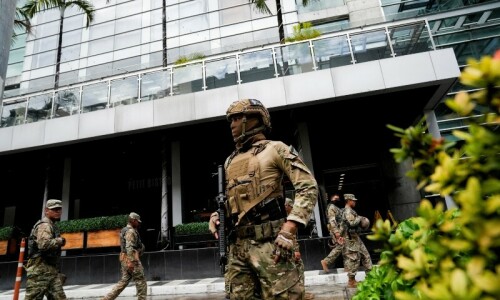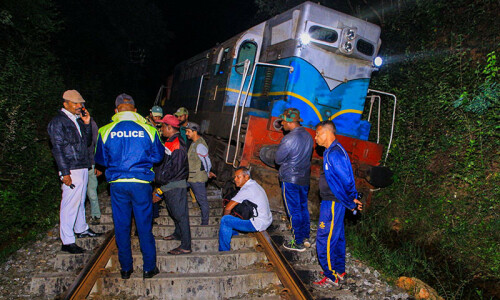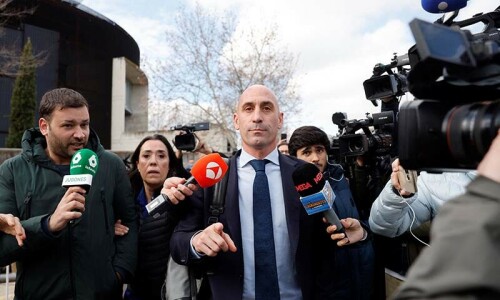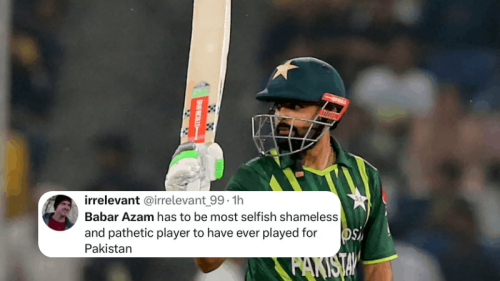
MANAGUA: Nicaraguan President Daniel Ortega, a socialist former guerrilla leader, marched toward a landslide re-election victory on Monday after drawing broad support for his anti-poverty programs.
Ortega had 63 per cent support based on a sample of votes from almost 40 per cent of polling stations in Sunday's presidential election.
Votes were being counted slowly so Ortega's victory was not yet formally announced but he was streets ahead of his two main conservative rivals, popular radio personality Fabio Gadea and former president Arnoldo Aleman.
Ortega's supporters poured into the streets of Managua to celebrate. “I'm happy ... I think that people are convinced, they voted for social programs, voted for the future, voted for the poor,” said lawyer Silvia Calderon, 54.
Ortega, 65, had needed only 40 per cent support to take a first round victory and avoid a run-off vote.
If the early results hold, the huge victory margin will be a personal triumph for a man who was for long a divisive figure, popular among his Sandinista party's supporters but despised by business leaders and distrusted by many Nicaraguans.
Ortega has moderated some of his socialist policies since taking office in early 2007 and won praise for letting private businesses work untroubled even as he pushed anti-poverty policies.
Helped by financial support from Venezuelan President Hugo Chavez, Ortega put money into health and education programs, provided loans for small businesses and gave aid to farmers.
“He's a person who looks after the poor and we have noticed the change,” said 43-year-old Xiomara Amador, a former army nurse who lost her right leg in the conflict. “In 16 years of other governments, no-one helped the handicapped.”
The policies won widespread support in largely agrarian Nicaragua, which was a Cold War battleground in the 1980s when Ortega's left-wing Sandinista government fought US-backed Contra rebels.
Ortega was a leader of the Sandinista revolution that toppled the Somoza family's brutal dictatorship in 1979.
US President Ronald Reagan saw the Sandinistas as a threat and backed right-wing rebels known as Contras in a decade-long civil war that killed around 30,000 people and wrecked the economy.
A REFORMED REBEL
Ortega was elected president in 1984 at the height of the war but was voted out in 1990 and then spent 16 years in opposition before bouncing back to power. He had gradually toned down his radical rhetoric and styled himself as a devout Christian by the time he won the last election in late 2006.
In a separate presidential election in Guatemala, voters elected another Cold War veteran on Sunday, but from the other side of the ideological divide: retired right-wing general Otto Perez.
Chavez and Cuban President Raul Castro both congratulated Ortega on his victory in Nicaragua, although he himself had yet to speak publicly.
Since winning the 2006 election with just 38 percent support, Ortega has overseen economic improvements and cemented his hold on Nicaragua. About 57 per cent of its people now live below the poverty line, down from 65.5 per cent in 2005, according to government and World Bank statistics.
The economy grew 4.5 per cent in 2010 and is expected to expand 4 per cent this year, making it one of the best performers in Central America, although it is still the second poorest country in the Western Hemisphere, behind Haiti.
Critics accuse Ortega of using the Sandinistas' control of the Supreme Court to lift a ban on consecutive presidential terms in a controversial 2009 decision, and of planning to further extend his rule, just as Chavez has done in Venezuela.
“If you breach the constitution, you can mess with other things too,” said Milton Ramirez, a 35-year sales executive who voted for Gadea. “We don't want another dictatorship.”
Opponents also say Ortega has made the country too dependent on Venezuelan petrodollars, and that he has moved deliberately to weaken democratic institutions.
Yet Ortega still managed to neutralize the threat from the right, and Gadea and Aleman failed to unite against him even though the son of one is married to the other's daughter.
Early results showed Gadea with around 30 per cent support and Aleman trailed way behind with less than 7 per cent.
Gadea supporters accused Ortega's party of manipulating the electoral process on Sunday, stuffing ballot boxes and making it hard for conservatives to cast their vote.














































